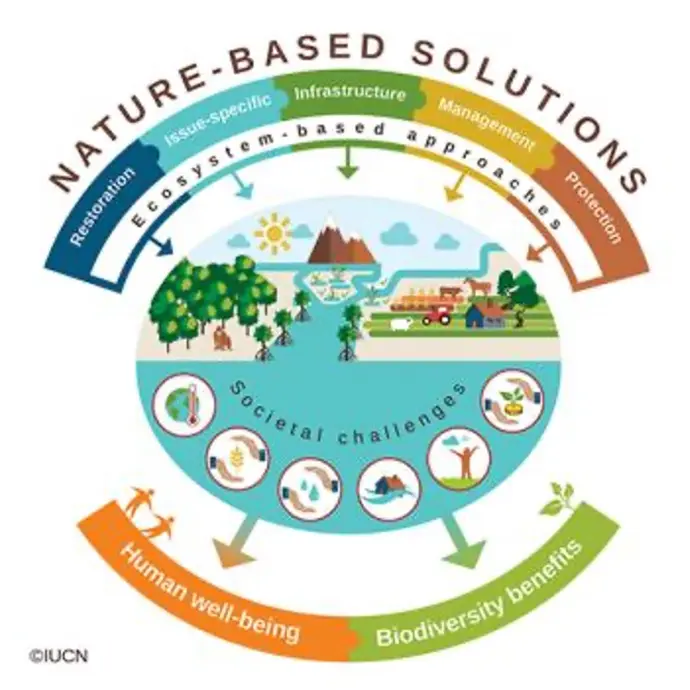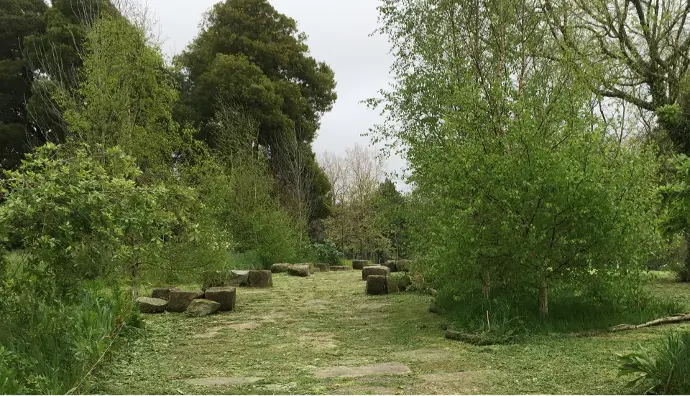Nature-based Solutions (NBS)
In the wake of severe overexploitation of the world's natural resources, including destructive land use and water management, regeneration and conservation of nature now stand out as fundamental for restoring planetary health. So-called Nature-based Solutions (NBS) have emerged as greatly important vehicles to achieve progress in this respect.
NBS are typically defined (by IUCN, UN bodies, and research literature), as actions to protect, conserve, restore, sustainably use and manage nature on terms that address social, economic and environmental challenges. They cater for human well-being, and respect social and environmental safeguards.

Inherent to NBS, they:
-> Connect with and draw on Nature
-> Link to Society, citizen engagement – co-creation, responding to the “real” issues – what matters to people
-> Are associated with Inclusion, public space “for all” – making the biggest difference for the vulnerable, often in deprived areas
-> Serve as vehicle for countering conflicts, overcome cultural barriers, fragmentation, and polarisation of cities and societies

In many respects, the benefits of NBS centre on people. Some have to do with the demonstrated positive impacts on health and wellbeing that follow from the proximity to nature. These have been repeatedly demonstrated by way of both physical and mental well-being. Particular benefits arise from people under duress. Where people on the ground play an active part in designing, implementing, and managing NBS, their relevance and value are systematically boosted. ealising the multifaceted benefits of NBS is not a given. Beside citizen engagement, key stakeholders need to come on-board. Additionally, so-called Nature-based Organisations (NBOs) are increasingly important for the potential value-streams of NBS to come widely attainable. Such organisations are marked by the adoption of nature as core to their product/service offerings. Through innovation in sync with sustainability, NBOs propel quality of service, catalyse and grow demand.
Limiting their achievements, however, green entrepreneurship and the growth of NBOs meet with multiple barriers, institutional as well as in the market-place.
With worsening environmental challenges, such as heat stress, risks of flooding, fires, etc., the importance and the value of deploying and managing NBS keep growing in importance. This calls for greater efforts to put in place adequate enabling conditions as well as identify and remove unproductive hurdles.
